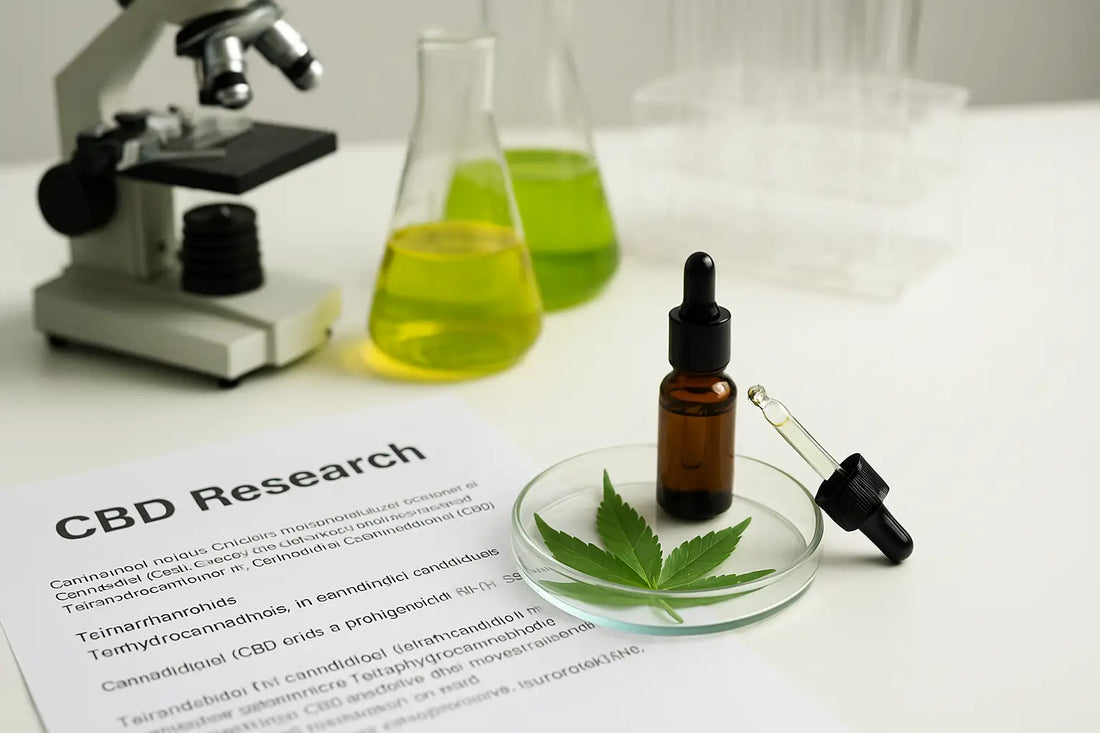
Why scientists are focusing on CBD research
Researchers are scientists who focus on studying CBD at the molecular level. In the last two decades, a large budget has been devoted to research purposes. There are so many aspects that have been successfully researched and the results of this research have led to the CBD drug development process.
Scientists have reported that the hemp plant contains a large number of naturally occurring active cannabinoids such as cannabidiol (CBD) as well as the previously better known tetrahydrocannabinol (THC). CBD contains none of the medicinal properties of its sister chemical THC and does not cause chills or intoxication. This makes it the perfect foundation for a new era of medicines and treatments.
CBD research results
The possible antifungal, antioxidant, neuroprotective, anti-inflammatory, analgesic, anti-inflammatory and anti-cancer properties are researched and researched daily around the world, making it a perfect and organic active chemical for cosmetics and medicines.
Studies published by the Federation of American Societies for Experimental Studies have also shown that cannabinoids are responsible for the formation of lipids and therefore play an important function in the regulation and healing of skin diseases. Additionally, these mitigations are highly effective when implemented independently and locally.
Evidence-based research
CBD also serves to increase the absorption speed of various chemicals for the skin, so CBD, due to its properties in topical cosmetic software, results in a healthy, safe and nourishing epidermis, forming the perfect foundation for a new era of groundbreaking, compelling, cosmetic products.
Additionally, reviewing numerous research studies on the effectiveness and safety of CBD in a variety of dosages, such as: B. heavy and chronic dosages, no significant side effects were found with various treatment methods. The minimal effect of THC comes from stimulating CB1 receptors. CBD has a fairly low affinity for these receptors and when it binds, it produces little to no result. There is also increasing evidence that CBD behaves in additional brain signaling methods, which may make a significant contribution to therapeutic outcomes.
The clinical trials are still needed to evaluate the clinical possibility of CBD to treat certain conditions. However, the preclinical study (as well as cell culture and animal models) has revealed that CBD has a selection of consequences that could be therapeutically beneficial such as antimicrobial, antioxidant, neuroprotective, anti-inflammatory, analgesic and anti-inflammatory properties.
References:
1. Stahl RW, Miller JH, Sim DA, Tag DJ. Delta-9-tetrahydrocannabinol disrupts hippocampal neuroplasticity and neurogenesis in trained but not untrained adolescent Sprague-Dawley rats. Brain Res. 2014 Feb 22; 1548: 12-9.
2. Kalant, H. Effects of cannabis and cannabinoids in the human nervous system, Effects of drugs in the human nervous system, BK Madras and MJ Kuhar eds, Elsevier 2014, ISBN: 978-0-12-418679-8.
3. Whiting PF, Wolff RF, Deshpande S, Di Nisio M, Duffy S, Hernandez AV, Keurentjes JC, Lang S, Misso K, Ryder S, Schmidlkofer S, Westwood M, Kleijnen J. Cannabinoids for medical purposes: A systematic review and meta-analysis. JAMA. 2015 Jun 23-30; 313 (24): 2456 - 73.
4. Lazary J., Juhasz G., Hunyady L., Bagdy G. Personalized medicines can pave the way for the safe use of CB&sub1; -Pave receptor antagonists. Trends Pharmacol Sci. 2011 May; 32 (5): 270 - 80.
Scientists have reported that the hemp plant contains a large number of naturally occurring active cannabinoids such as cannabidiol (CBD) as well as the previously better known tetrahydrocannabinol (THC). CBD contains none of the medicinal properties of its sister chemical THC and does not cause chills or intoxication. This makes it the perfect foundation for a new era of medicines and treatments.
CBD research results
The possible antifungal, antioxidant, neuroprotective, anti-inflammatory, analgesic, anti-inflammatory and anti-cancer properties are researched and researched daily around the world, making it a perfect and organic active chemical for cosmetics and medicines.
Studies published by the Federation of American Societies for Experimental Studies have also shown that cannabinoids are responsible for the formation of lipids and therefore play an important function in the regulation and healing of skin diseases. Additionally, these mitigations are highly effective when implemented independently and locally.
Evidence-based research
CBD also serves to increase the absorption speed of various chemicals for the skin, so CBD, due to its properties in topical cosmetic software, results in a healthy, safe and nourishing epidermis, forming the perfect foundation for a new era of groundbreaking, compelling, cosmetic products.
Additionally, reviewing numerous research studies on the effectiveness and safety of CBD in a variety of dosages, such as: B. heavy and chronic dosages, no significant side effects were found with various treatment methods. The minimal effect of THC comes from stimulating CB1 receptors. CBD has a fairly low affinity for these receptors and when it binds, it produces little to no result. There is also increasing evidence that CBD behaves in additional brain signaling methods, which may make a significant contribution to therapeutic outcomes.
The clinical trials are still needed to evaluate the clinical possibility of CBD to treat certain conditions. However, the preclinical study (as well as cell culture and animal models) has revealed that CBD has a selection of consequences that could be therapeutically beneficial such as antimicrobial, antioxidant, neuroprotective, anti-inflammatory, analgesic and anti-inflammatory properties.
References:
1. Stahl RW, Miller JH, Sim DA, Tag DJ. Delta-9-tetrahydrocannabinol disrupts hippocampal neuroplasticity and neurogenesis in trained but not untrained adolescent Sprague-Dawley rats. Brain Res. 2014 Feb 22; 1548: 12-9.
2. Kalant, H. Effects of cannabis and cannabinoids in the human nervous system, Effects of drugs in the human nervous system, BK Madras and MJ Kuhar eds, Elsevier 2014, ISBN: 978-0-12-418679-8.
3. Whiting PF, Wolff RF, Deshpande S, Di Nisio M, Duffy S, Hernandez AV, Keurentjes JC, Lang S, Misso K, Ryder S, Schmidlkofer S, Westwood M, Kleijnen J. Cannabinoids for medical purposes: A systematic review and meta-analysis. JAMA. 2015 Jun 23-30; 313 (24): 2456 - 73.
4. Lazary J., Juhasz G., Hunyady L., Bagdy G. Personalized medicines can pave the way for the safe use of CB&sub1; -Pave receptor antagonists. Trends Pharmacol Sci. 2011 May; 32 (5): 270 - 80.



